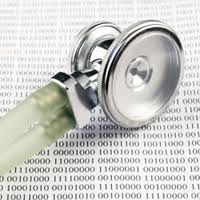 The current medical coding system in the United States is referred to as the International Classification of Disease 9 Clinical Modification, or ICD-9-CM. ICD-9-CM was adopted in the United States in the 1970s and contains more than 17,000 codes that describe diseases, diagnoses and procedures. While 17,000 codes may sound like a lot, the United States is actually well behind the curve when it comes to the classification of diseases.
The current medical coding system in the United States is referred to as the International Classification of Disease 9 Clinical Modification, or ICD-9-CM. ICD-9-CM was adopted in the United States in the 1970s and contains more than 17,000 codes that describe diseases, diagnoses and procedures. While 17,000 codes may sound like a lot, the United States is actually well behind the curve when it comes to the classification of diseases.
Most technologically advanced countries use an updated coding standard, ICD -10, which was first introduced in 1990 and was adopted by most World Health Organization (WHO) members in 1994. This classification system has more than 141,000 and is better adapted to describe disease, diagnoses and procedures.
The Department of Health and Human Services has mandated that medical coders and billers in the United States must begin using the ICD-10 classification system no later than October 1, 2013. This change is significant because ICD-9-CM and ICD-1 are so radically different and because the switch will require significant retraining for even the most experienced medical coders and billers. In addition to the retraining, medical coding software must also be updated and deployed. Further, the Department of Health and Human Services has indicated that it will not grant any delays, extensions or grace periods for ICD-10-CM deployment, and all providers must be in compliance with the new mandates no later than October 1, 2013.
The change from ICD-9-CM to ICD-10-CM is badly needed because the ICD-9-CM coding system cannot accommodate any more coding additions. As new conditions are discovered and new procedures are developed, the current diagnostic code system cannot describe them. This has implications not only for providers’ record-keeping, but also public health agencies that research the incidence of disease and the success of treatments.
By moving to a more advanced medical coding system, researchers can better identify disease clusters, effective treatments, treatment side effects, and outcomes. In addition, a more advanced medical coding system will help healthcare providers streamline their billing processes, decrease wait times for payments and improve the overall delivery of medical care.
The new ICD-10-CM coding system can identify the current state of a disease or condition, as well as progression. It also differentiates initial exams from treatments and follow-ups, as well as the incidence of complications. The new coding system can also help localize disease to very specific points in the body.
In addition to the adoption of the ICD-10-CM coding system for diagnostics, the Department of Health and Human Services has also mandated the use of ICD-10-PCS, which is a specialized reporting code for inpatient services. The alphanumeric system does not rely on Latin medical terminology, and represents a significant departure from the current ICD-9-CM Volume 3 procedure coding system.
Students in medical billing and coding programs should see an increase focus on ICD-10 curriculum. Medical coding and billing departments are also facing additional changes that affect the way they will submit charges and medical information to Medicare and Medicaid. Medical providers will be required to submit their claims electronically using new the newly adopted HIPAA 5010 standard. The new standards for electronic claim submission will require significant changes to the software and systems used to bill Medicare and other health insurance providers, and will also require retraining of medical billers and coders.
Mitchell Gavillion is a journalism graduate and currently writes about education, lifestyle & art. Mitchell has also written about marketing for business.



Thank you for the information.